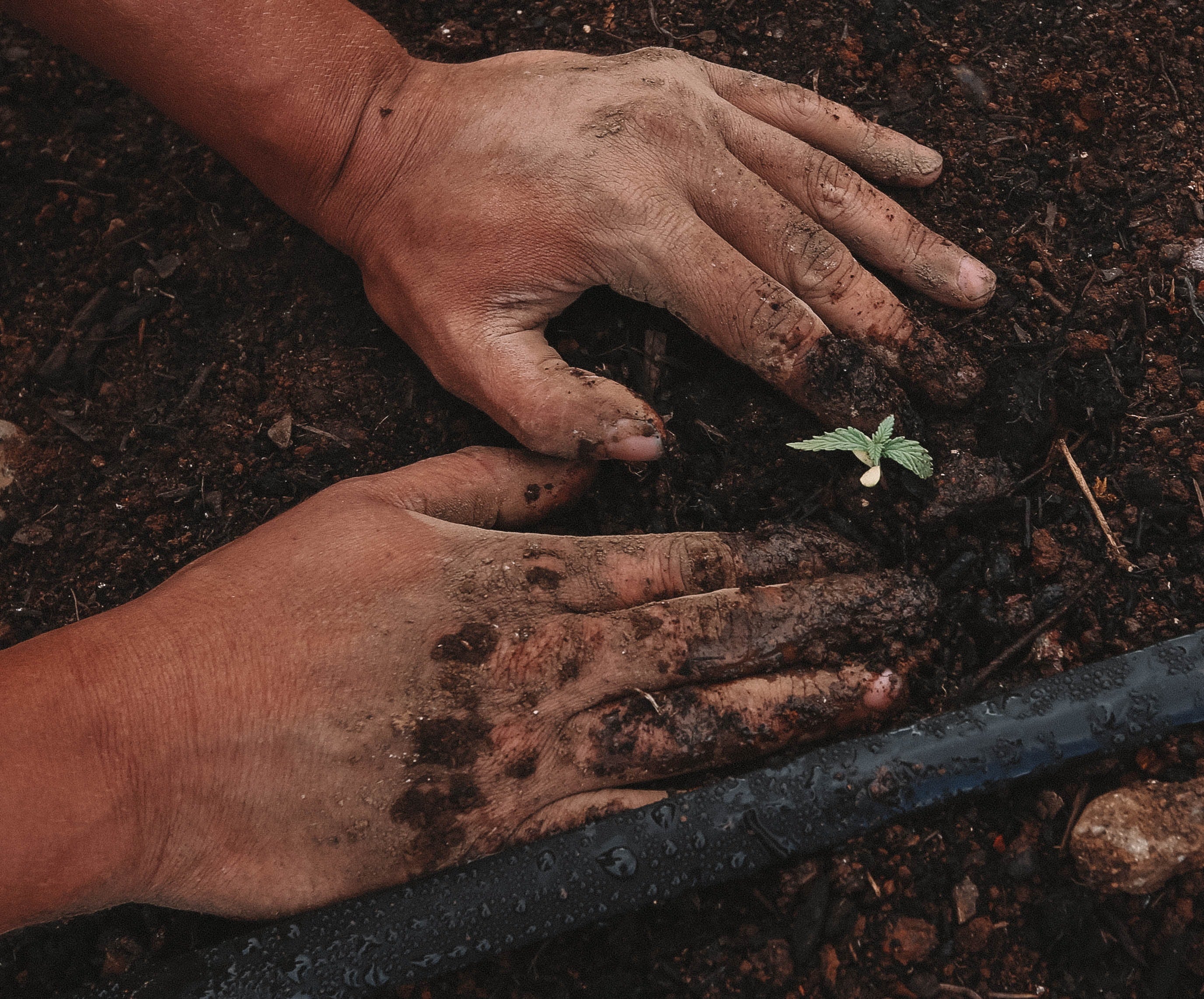

In today's unpredictable world, the need for food security has become increasingly evident. Events such as the global pandemic have disrupted food supply chains, making it difficult for many to access essential groceries. Climate change has further complicated matters by causing extreme weather conditions that impact crop production. Additionally, geopolitical tensions can lead to unexpected shortages and price hikes that influence food security. These factors underscore the importance of becoming more self-reliant when it comes to our food supply. Fortunately, gardening offers a viable and sustainable solution, providing a steady source of fresh produce right from our own backyards. This article delves into practical gardening secrets that can empower you to enhance your food security and achieve greater self-reliance.
The Basics of Food Security
To truly appreciate the importance of gardening for food security, it's essential to grasp what food security entails. Food security goes beyond merely having enough to eat; it encompasses the availability of food that is safe and nutritious, and that consistently meets our dietary requirements. Reliable access means that individuals and families are not left vulnerable to disruptions that could compromise their food supply. This includes considerations of food quality and the assurance that the food consumed is healthy and beneficial. By understanding these fundamentals, we can better appreciate how gardening can play a pivotal role in achieving food security.

Secret #1: Start Small and Learn
Begin with a Tiny Plot
Embarking on your gardening journey doesn't have to be daunting for your food security. Starting with a small plot or even a few containers on a balcony can be surprisingly productive. Easy-to-grow vegetables such as tomatoes, lettuce, and various herbs can provide a rewarding harvest with minimal effort. This approach allows you to gain practical experience and build confidence without being overwhelmed. As your gardening skills improve and you become more comfortable, you can gradually expand your garden space and variety of crops, ensuring a manageable and enjoyable progression for food security.
Learn Food Security from Local Experts
One of the best ways to accelerate your gardening knowledge and food security is by tapping into local resources. Gardening clubs, community workshops, and experienced gardeners can offer invaluable insights tailored to your specific region. They understand the local climate, soil types, and common growing conditions, which can differ significantly from one area to another. Learning from their experiences and mistakes can help you avoid common pitfalls and make your gardening efforts more effective in your endeavors to grasp food security.
Secret #2: Soil Health Matters for Food Security
Know Your Soil
The success of your garden heavily relies on the health of your soil. Soil testing is a crucial first step to understand its pH balance, nutrient content, and texture. Knowing these factors allows you to amend the soil appropriately, using organic matter such as compost or well-rotted manure to enhance its fertility. Healthy soil not only supports vigorous plant growth but also leads to higher yields and more nutritious produce. Investing time in improving your soil health is a fundamental aspect of sustainable gardening and gaining food security.
Companion Planting
Companion planting is a strategic approach to gardening that involves growing certain plants together to enhance growth and productivity and food security. Some plants have natural affinities that benefit each other. For instance, planting basil near tomatoes can improve the flavor of tomatoes and help deter pests. Researching and implementing companion planting strategies can lead to a more productive and boost your food security this growing season. This practice not only boosts yields but also promotes a healthier garden ecosystem by naturally deterring pests and improving soil fertility.

Secret #3: Embrace Diversity in Food Security
Grow a Variety of Crops
Relying on a single crop (monoculture) can be perilous for a garden. If a pest infestation or disease outbreak occurs, it can devastate your entire harvest. To mitigate this risk, diversify your garden by growing a variety of crops, including vegetables, fruits, and herbs. This not only spreads the risk but also ensures a more resilient and productive garden. A diverse garden is less likely to suffer total loss, and it provides a more balanced and nutritious diet, ultimately boosting your food security.
Heritage and Heirloom Varieties
Heirloom and heritage plant varieties offer numerous benefits over commercial hybrids. These plants are often more resilient to local pests and diseases, and they tend to have superior flavor and nutritional value. Additionally, heirloom plants allow you to save seeds from your harvest, ensuring you can replant them year after year. This practice promotes sustainability and self-reliance, as you become less dependent on purchasing new seeds each season. Here at Seed Armory, we offer a multitude of 100% heirloom, non-GMO seeds that will get your survival garden started off right and boost your foothold in food security. Check our select premium seed vault collections to get your garden started off right this season!
Secret #4: Master the Art of Canning
Preserve Your Harvest
One of the most effective ways to ensure food security is by preserving the produce you grow. Canning is a time-honored method that allows you to extend the shelf life of your harvest, making it possible to enjoy homegrown fruits and vegetables even during off-seasons. Begin with straightforward canning recipes such as pickles, jams, and sauces. These are not only easy to make but also incredibly rewarding. As you gain experience, you can branch out into more complex canning projects, allowing you to fully utilize and savor the fruits of your labor and gain food security.
Invest in Quality Canning Equipment
For successful canning, investing in quality equipment is crucial. Essential items include a reliable pressure canner, high-quality canning jars, and lids. Properly sealed jars are vital to prevent spoilage and ensure the safety and nutritional integrity of your preserved food. Using good equipment not only makes the canning process more efficient but also enhances the longevity and safety of your preserved goods, providing you with a reliable food source throughout the year. Here at Seed Armory, we provide food preservation essentials that will help you gain access to food security in no time! Check out our selection of canning tools and equipment here!
Secret #5: Pest Management
Natural Pest Control
Chemical pesticides can harm the environment and beneficial insects. Instead, adopt natural pest control methods. Attract beneficial insects or animals such as ladybugs and lacewings, and bats which prey on common garden pests. Planting flowers like marigolds and nasturtiums can also help repel pests naturally. Regularly inspecting your plants for signs of trouble allows you to address issues promptly before they become severe. By focusing on natural pest control, you can maintain a healthy garden ecosystem and reduce your reliance on harmful chemicals.
Crop Rotation
Crop rotation is a powerful technique to enhance soil health and disrupt pest cycles. By changing the location of your crops each season, you prevent soil depletion and reduce the buildup of pests and diseases that target specific plants. For instance, avoid planting tomatoes in the same spot every year. This practice not only improves soil fertility but also reduces the likelihood of persistent pest problems. Implementing crop rotation in your garden fosters a healthier and more productive growing environment.
Conclusion
Embracing these gardening secrets can transform your approach to food security, allowing you to enjoy the benefits of fresh, homegrown produce. The journey of gardening is a continuous learning experience, filled with successes and occasional setbacks. By starting small, focusing on soil health, embracing crop diversity, managing water wisely, and adopting natural pest control methods, you can cultivate a thriving garden that enhances your self-reliance. Each season brings new opportunities to learn and grow, contributing to your overall food security. So, dig in, nurture your plants, and relish the rewards of your labor. Happy gardening!






